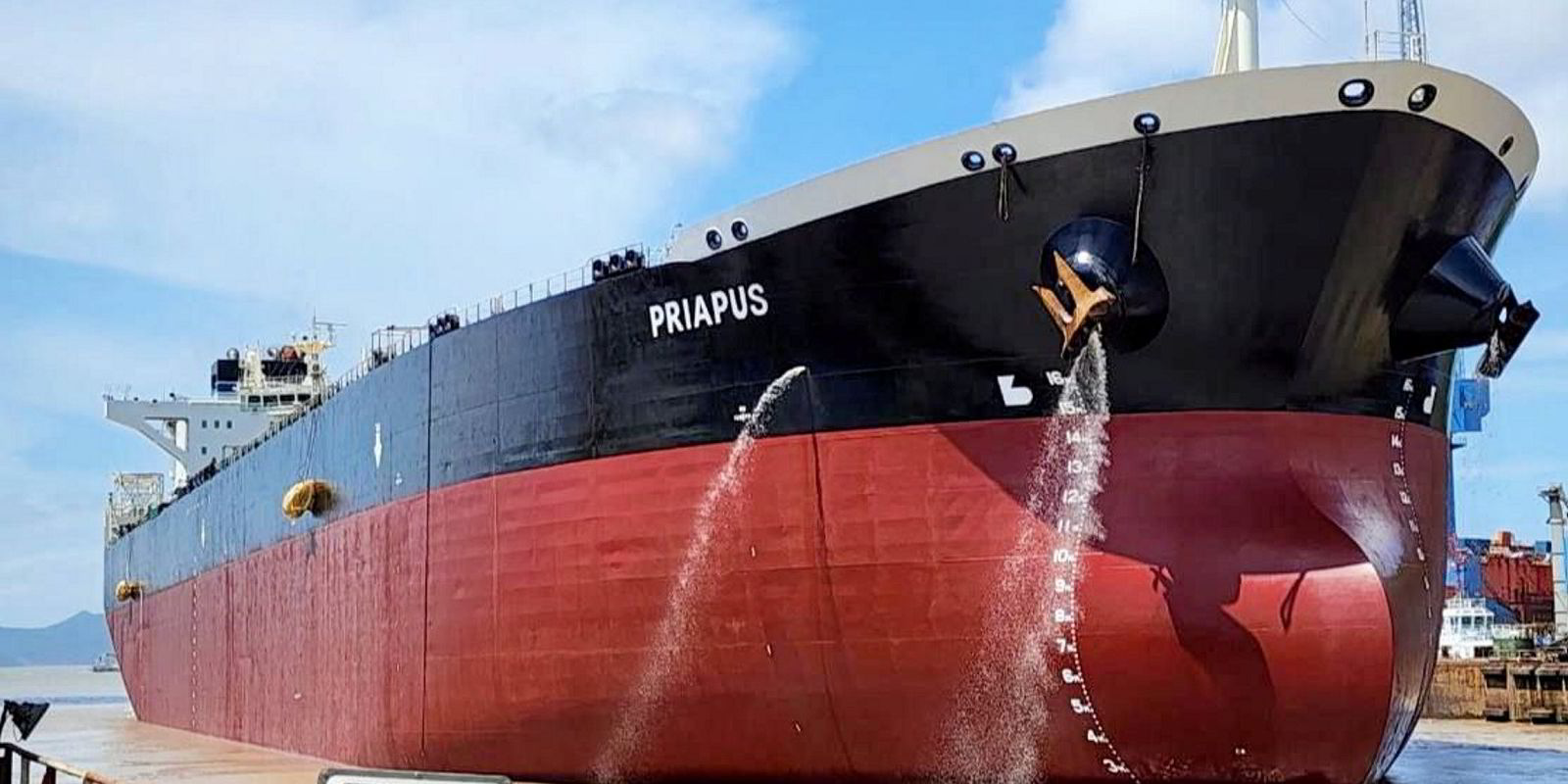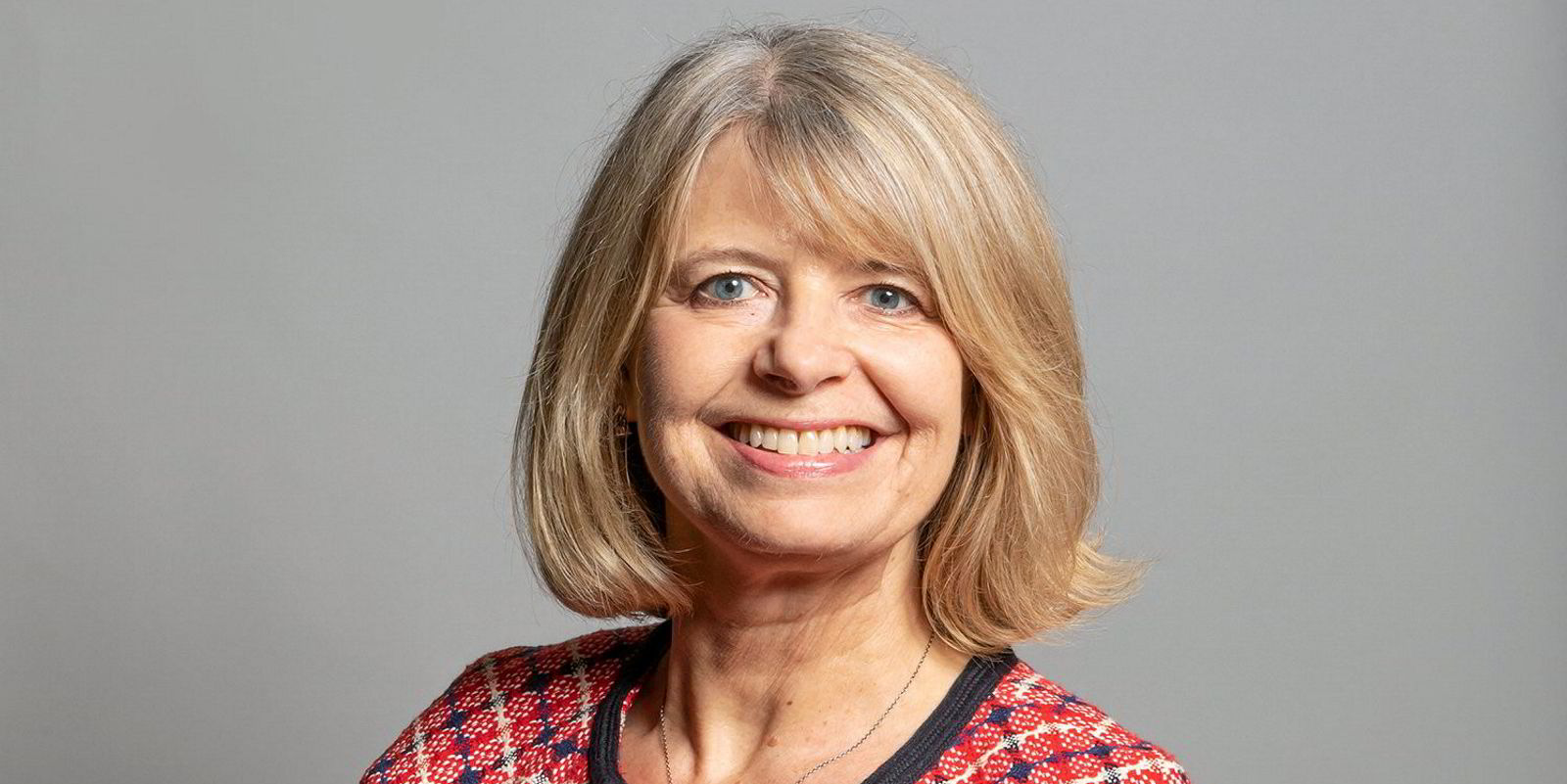The Dubai unit of Switzerland’s Fractal Shipping, a Russian oil specialist, shifted nearly half of its fleet to new commercial management within a week of the company being hit by UK sanctions, databases show.
Eleven of the 24 ships on the books of Fractal Marine DMCC have gone to new managers in the United Arab Emirates and Turkey since it was blacklisted, according to ownership database Equasis.
The UK government targeted the company on 22 February in measures announced to coincide with the second anniversary of the invasion of Ukraine.
Two Turkish tanker operators, Beks Ship Management and Active Denizcilik, were also blacklisted.
Coordinated activity by G7 allies also saw the European Union and US announce new financial penalties against other shipping-related companies but not the three targeted by the UK.
The UK’s foreign office gave no details beyond saying the company was “obtaining a benefit from or supporting” the Russian government by carrying on business in a sector of strategic importance.
But the Swiss-headquartered company was not barred from hauling Russian oil as long as the crude carried by its tankers was sold below the cap price of $60 a barrel, or $100 and $45 for oil products, according to the Western sanctions regime.
The UK sanctions notice did not refer to any price cap breach and a foreign office official referred back to the broad statement on the listings notice.
Fractal has said it has always complied with the oil cap and has appealed against the decision.
Fractal Shipping was the only European tanker start-up focused on the Russian trade when it launched in 2022, backed by Middle Eastern money and headed by British-French national Mathieu Philippe.
Its fleet was built up rapidly from 2022 into 2023 with an average age of 17 years and was suited to cash in on the higher rates offered by Russian trades while other companies avoided the business, largely owing to regulatory, legal or reputational concerns.
Philippe told TradeWinds in January that the bumper earnings from the trades had largely run their course and he was looking to diversify into other markets with younger vessels.

But the move by the UK has thrown those plans awry and appears to have sparked significant management changes.
Under the regime, any ship owned, controlled, chartered or operated by a blacklisted company is barred from entering a UK port and can be detained, according to the notice.
Ship shuffle
Under the changes, six ships have gone to Istanbul-based Westanker Denizcilik, a new firm set up in February, according to a database of new businesses run by the Istanbul Chamber of Commerce.
Another five went to UAE-based company BPT Shipping Co, which also took over management on 29 February, according to Equasis. All 24 remain under single-ship ownership.
Fractal has been approached for comment.
Other companies previously targeted by Western sanctions have also shifted vessels to new companies in an apparent effort to avoid the impact of sanctions.
The UK action meant that Fractal lost its protection and indemnity insurance from G7 providers the West of England and the American Club.
But the flagging services for the 24 ships currently remain with Panama.
The registry said that it complied with all United Nations’ resolutions and regulations published by the International Maritime Organization. It said that unilateral sanctions must follow “dialogue and consensus” among countries.
“So far, no formal information has been provided by the UK government,” said the registry. “Nevertheless, we remain attentive and we are following up on the case and monitoring the fleet behaviours.”
Ian Bolton, an architect of sanctions legislation in the UK and chief executive of consultancy Sanctions SOS, said the impact of the designation would likely be seen over the longer term.
“I suspect at the moment, beyond the insurance side, the impact is yet to be felt and fully understood in terms of what will it mean for the supply chain, ability to call into ports, get insurance and reinsurance and even be derisked by some institutions,” he said.
Read more
- The flaws at the heart of Russian shipping sanctions
- P&I clubs pull cover after UK blacklists tanker operator Fractal
- Tanker newcomer Fractal challenges UK blacklisting over Russia role
- Swathe of US and EU sanctions targets include shipyards, owners and vessels
- Beks Ship Management vows to fight UK blacklisting over Russia links





